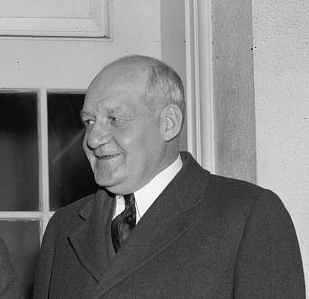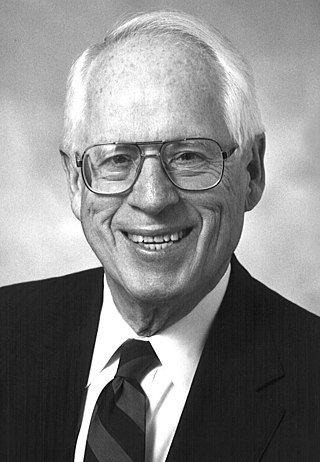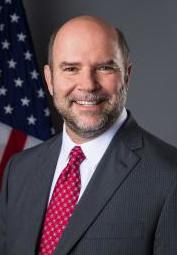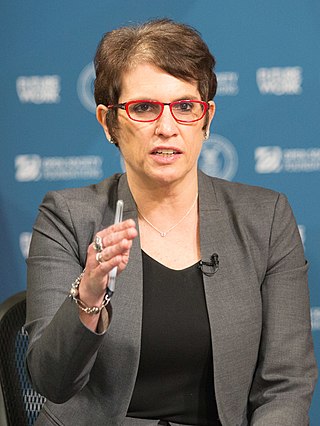
The National Labor Relations Board (NLRB) is an independent agency of the federal government of the United States that enforces U.S. labor law in relation to collective bargaining and unfair labor practices. Under the National Labor Relations Act of 1935, the NLRB has the authority to supervise elections for labor union representation and to investigate and remedy unfair labor practices. Unfair labor practices may involve union-related situations or instances of protected concerted activity.

The Federal Mediation and Conciliation Service (FMCS), founded in 1947, is an independent agency of the United States government, and the nation's largest public agency for dispute resolution and conflict management, providing mediation services and related conflict prevention and resolution services in the private, public, and federal sectors. FMCS is tasked with mediating labor disputes around the country; it provides training and relationship development programs for management and unions as part of its role in promoting labor-management peace and cooperation. The Agency also provides mediation, conflict prevention, and conflict management services outside the labor context for federal agencies and the programs they operate. The FMCS headquarters is located in Washington, D.C., with other offices across the country.
The Employee Free Choice Act is the name for several legislative bills on US labor law which have been proposed and sometimes introduced into one or both chambers of the U.S. Congress.
NLRB v. Mackay Radio & Telegraph Co., 304 U.S. 333 (1938), is a United States labor law case of the Supreme Court of the United States which held that workers who strike remain employees for the purposes of the National Labor Relations Act (NLRA). The Court granted the relief sought by the National Labor Relations Board, which sought to have the workers reinstated by the employer. However, the decision is much better known today for its obiter dicta in which the Court said that an employer may hire strikebreakers and is not bound to discharge any of them if or when the strike ends.

Peter N. Kirsanow is a partner with the law firm of Benesch, Friedlander, Coplan & Aronoff, working within its Labor & Employment Practice Group in Cleveland, Ohio. He is a black civil-rights commissioner and a member of the United States Commission on Civil Rights, serving his fourth consecutive 6-year term, which he was reappointed to by House Majority Leader Steny Hoyer in December 2019. He is the longest-serving member among the current commission. He was previously a member of the National Labor Relations Board (NLRB) from January 2006 to January 2008.
Communications Workers of America v. Beck, 487 U.S. 735 (1988), is a decision by the United States Supreme Court which held that, in a union security agreement, unions are authorized by statute to collect from non-members only those fees and dues necessary to perform its duties as a collective bargaining representative. The rights identified by the Court in Communications Workers of America v. Beck have since come to be known as "Beck rights", and defining what Beck rights are and how a union must fulfill its duties regarding them is an active area of modern United States labor law.

Joseph Warren Madden was an American lawyer, judge, civil servant, and educator. He served as a judge of the United States Court of Claims and was the first Chairman of the National Labor Relations Board. He received the Medal of Freedom in 1947.
Harold Craig Becker, known professionally as Craig Becker, is an American labor attorney, a former member of the National Labor Relations Board, and currently the Senior Counsel to the AFL–CIO.
New Process Steel, L.P. v. NLRB, 560 U.S. 674 (2010), is a U.S. labor law case of the United States Supreme Court holding that the National Labor Relations Board (NLRB) cannot make decisions without at least three members on a panel.
Betty Jane Southard Murphy was an American attorney who was the first woman to serve on the National Labor Relations Board, serving as the agency's eighth chair from 1975 to 1977. She was also the first woman to lead the United States Department of Labor Wage and Hour Division, and co-founded the National Women's Political Caucus and the Republican National Lawyers Association.

Harry Alvin Millis was an American civil servant, economist, and educator and who was prominent in the first four decades of the 20th century. He was a prominent educator, and his writings on labor relations were described at his death by several prominent economists as "landmarks". Millis is best known for serving on the "first" National Labor Relations Board, an executive-branch agency which had no statutory authority. He was also the second chairman of the "second" National Labor Relations Board, where he initiated a number of procedural improvements and helped stabilize the Board's enforcement of American labor law.
Lafe E. Solomon was named the Acting General Counsel of the National Labor Relations Board (NLRB) on June 21, 2010, by President Barack Obama. His nomination to serve as General Counsel was sent to the U.S. Senate on January 5, 2011. On August 1, 2013, President Obama withdrew his nomination, instead choosing to nominate Richard Griffin, Jr. for the position. The action came about as a result of a compromise between Senate Republicans and the White House concerning nominations to the NLRB.

John Cushman Truesdale Jr. was an American lawyer and civil servant who served two terms as executive secretary of the National Labor Relations Board, four terms as a board member, and one term as board chair.
Guy Otto Farmer was an American lawyer and civil servant. He was Chairman of the United States National Labor Relations Board from July 1953 to August 1955. After leaving government service, he represented the Bituminous Coal Operators Association, the collective bargaining arm of the bituminous coal mining industry in the United States.
National Labor Relations Board v. Noel Canning, 573 U.S. 513 (2014), was a United States Supreme Court case in which the Court unanimously ruled that the President of the United States cannot use his authority under the Recess Appointment Clause of the United States Constitution to appoint public officials unless the United States Senate is in recess and not able to transact Senate business. The Court held that the clause allows the president to make appointments during both intra-session and inter-session recesses but only if the recess is of sufficient length, and if the Senate is actually unavailable for deliberation, thereby limiting future recess appointments. The Court also ruled that any office vacancy can be filled during the recess, regardless of when it arose. The case arose out of President Barack Obama's appointments of Sharon Block, Richard Griffin, and Terence Flynn to the National Labor Relations Board and Richard Cordray as the director of the Consumer Financial Protection Bureau.

William Emanuel is an American lawyer and government official who formerly served as a member of the National Labor Relations Board. Prior to assuming that role, he was a shareholder at the law firm Littler Mendelson.

Philip Andrew Miscimarra is a partner in the labor and employment practice of Morgan, Lewis & Bockius LLP, and he is a former American government official who served as the chairman of the National Labor Relations Board (NLRB). He first joined the NLRB as a board member appointed by President Barack Obama in 2013, and he was named chairman by President Donald J. Trump in 2017. Prior to his appointment to the NLRB, he worked as a Morgan Lewis partner in Chicago. After his service on the NLRB ended, Miscimarra joined Morgan Lewis in Washington, D.C., and Chicago. Miscimarra is also a senior fellow in the Wharton Center for human resources at the University of Pennsylvania's Wharton School.

Mark Gaston Pearce is an American lawyer, arbitrator and university professor who is best known for serving as a member of the National Labor Relations Board (NLRB). Pearce was designated chairman of the board by President Barack Obama on August 28, 2011, and served as chairman until January 22, 2017. He currently is a visiting professor and the executive director of the Workers' Rights Institute at Georgetown University Law Center.

Sharon Block is an American attorney, government official, labor policy advisor and law professor who served during the Biden administration as the Associate Administrator delegated the duties of the Administrator of the Office of Information and Regulatory Affairs from January 20, 2021, to February 1, 2022. During the Obama administration, Block served on the National Labor Relations Board and in the United States Department of Labor and the White House. She currently serves as a professor of practice and the executive director of the Labor and Worklife Program at Harvard Law School.

Lauren McFerran is an American lawyer and government official who is a member and chairman of the National Labor Relations Board. She is one of three Democrats currently serving on the board. Prior to serving on the board, she worked as a law clerk, in private practice, and as a labor lawyer for the Senate Committee on Health, Education, Labor, and Pensions.













